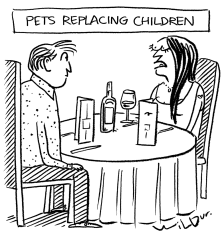
As a parable that sums up the dysfunction of the modern state and the over-regulation of industry, this has it all: government by unaccountable quango, ministers whose actions are the opposite of their words, puritanical campaigners given the power to dictate how people spend their money, a refusal to recognise glaring trade-offs and the cost of regulation, and the complacency with which a great British success story might be killed off.
The success story in question is horse racing. With five million fans a year visiting 59 courses, racing is Britain’s second most popular spectator sport after football. And we are good at it. We have the best horses, the best trainers, and four of the top ten races in the world. The industry contributes
£4.1 billion to the economy and £300 million a year to the Treasury, and it keeps 100,000 people in work, including in our betting industry, supporting rural and semi-rural communities – such as West Suffolk, which I represent in parliament.
Problem gambling among people betting on horse racing is about as common as it is among those buying National Lottery scratch cards. Yet thanks to the Gambling Commission’s blinkered campaign against gambling addiction – which is almost entirely down to gaming and gambling online – the government is risking the destruction of the entire racing industry.
Although the trade in bloodstock is worth millions of pounds, profit margins are tight for breeders and trainers. They do not necessarily see a return on what they invest. We are breeding fewer thoroughbred horses, and the British racing industry is in danger of falling behind global competitors.
Much of this comes down to how the sport is funded. In Australia, Ireland and France, there is more government support for horse racing, through direct grants or betting taxes. More private investment is available in Japan and the United States. Prize money, upon which our breeders and trainers depend for their income, is more modest here than in other countries. The Queen Anne Stakes at Ascot, for example, carries rewards worth £750,000. But prize money can go as high as £3.7 million in the Dubai Turf and £2.3 million in the Hong Kong’s Champions Mile.
In this country, the racing industry relies on media rights, entry fees and executive contributions for much of its funding. But a third of its income comes from the Horserace Betting Levy, a statutory payment collected from bookmakers based on their profits from betting on British racing.
Ministers pay lip service to the importance of racing, but action never follows
The introduction of affordability checks means that since 2020, those betting on racing at a certain level have been required to go through credit reference agency vetting, submitting bank statements and payslips to prove they can afford the stake. In February, the threshold for triggering these checks was lowered to anyone betting more than £150 on racing within 30 days. There is evidence that these checks are turning customers away from racing – at a cost of £3 billion in lost turnover in just two years.
Instead of working with the industry to put this right, the government now wants to make it even worse. This month ministers launched a consultation on combining online gambling taxes into a single flat rate. The online gaming duty currently stands at 21 per cent, compared with the 15 per cent general betting duty which applies to horse racing. Combining the taxes into a single 21 per cent rate would cost racing £40 million a year.

This could all have been predicted, which was why last month I challenged Lisa Nandy, the Culture Secretary, to commit to taxing and regulating betting on sport differently to online gaming. The differences between the two should be obvious. Gaming requires no skill or knowledge and can be played over and over again at all hours. Casino online gambling is known to be extremely addictive. In contrast, betting on racing is limited by the number of races and requires information and judgment.
Nandy said she agreed that ‘we need to treat different forms of gambling differently’. But less than five weeks later, the Treasury proposed its flat rate of tax. Taxing bets on racing at the same rate as online gaming will reinforce the failure of affordability checks, driving more people towards the betting black market. The Gambling Commission admits that it cannot control the rapid growth of black market sites, which give no protection to the gambler and zero revenue to the government.
Ministers pay lip service to the importance of racing, and offer plenty of warm words about ensuring its success. But action never follows. If they really want to back British racing, they should recognise the unique way the sport is funded and set policy accordingly.
Those at the top of the industry understand that nothing in this world stands still, and the sport needs to modernise and increase commercial revenues. The government must also recognise that the Horse-race Betting Levy needs to be reformed. The loss of income from the imposition of affordability checks makes this change all the more urgent. We could apply the levy to bookies’ total turnover rather than just their profits, for example. We could apply it to bets on races overseas so long as the bets are placed with bookmakers here. The rate could be increased above the current 10 per cent, as Italy has done. Ministers have ducked responsibility for all these choices, insisting reforms to the levy should be determined by racing and the gambling industry together. This is wishful thinking, and in the end ministers will need to decide.
They will need to decide whether they really want to stick to their reckless new sports tax, too. If they do, they are in danger of destroying a brilliant but endangered British export. This matters to the millions of racing fans, the many thousands whose livelihoods depend on the sport, and to every-body who cares about the future of our economy. For the treatment of racing is no isolated case: patronising paternalism, bad taxes and over-regulation are fatal for jobs and the viability of whole industries.








Comments